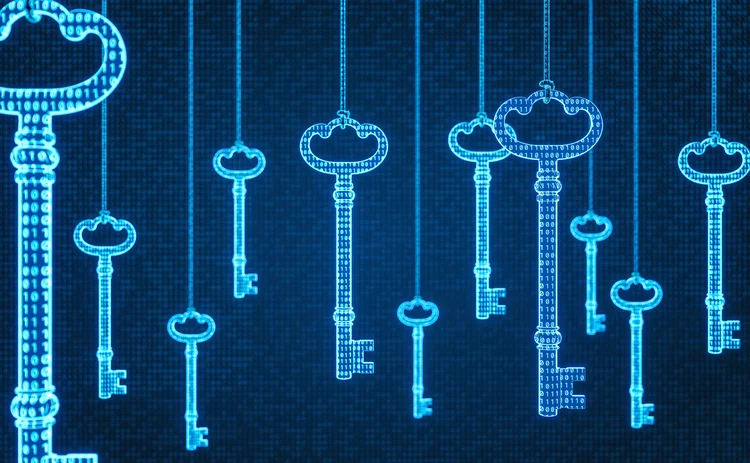CSDs Consider Entry into Crypto Market
The crypto markets need a body that fulfils the role of depositories adequately, say settlement specialists

A group of central securities depositories (CSDs)—specialist organizations that typically are responsible for holding securities such as shares so they can be easily transferred—are exploring how their roles are translatable to the crypto-asset infrastructure, in a sign that traditional finance’s biggest players are considering an entry to the market.
Walter Verbeke, global head of business model and innovation at Euroclear tells WatersTechnology that there are certain pieces of financial market infrastructure (FMI) and roles that CSDs as a central body plays today, that could be used in the crypto market.
“Tomorrow, those FMI roles will have to be played as well. And some of those pieces of infrastructure and some of those FMI roles will fall more naturally into our remit for what a CSD does. It’s very simple. What do we do as a business? Very simply, we provide safety and efficiency and that’s what people look for. If you have that then, a traditional investor base—for example, pension funds, and investment managers—will feel confident,” he says.
Elements of traditional market structure, such as proper custody agents and settlement specialists, are commonly cited among the key barriers to entry for institutional investors. While some projects have been announced by the largest digital currency exchanges, such as Coinbase, few of the existing custodians and CSDs in equities and other well-established markets have publicly spoken about firm plans to engage.
Part of the reason is due to the idiosyncrasies of the crypto market, which bear some resemblance to commodities in theory, but in practice hold their own concerns. While delivery and storage of physical products such as grain or metals, for instance, require warehousing and supply chains, crypto custody requires a high level of technical sophistication, such as cold storage of wallets and identification keys, and the ability to transfer assets between them. Blockchain technology provides an auditable means to do this on public ledgers, but this is not always regarded as suitable for professional-grade transactions, particularly those that may take place in the dark and cannot be publicly revealed.
Euroclear is one of the 28 CSDs that published a paper through the International Securities Services Association (ISSA) discussing how their roles are applicable to the crypto asset market.
Verbeke adds that there are a number of risks that exist in the market that drove the need to create CSDs some 50 years or so ago. “The market came together and created CSDs to mitigate those risks inherent to the capital market. If you and I buy something from each other, I need to know who you are. That would mean that I have a counterparty risk, a settlement risk, a liquidity risk, legal risk, jurisdictional risk, and so on. It doesn’t matter whether it’s with securities or fixed income—these risks are inherent to a capital market. That’s why the capital markets created an organization to mitigate those risks,” he says.
He says crypto assets are just another asset class in that same capital market. “So there’ll be those same risks again, but of course the way it’ll present itself will be a bit different. Today we have a centralized database. Tomorrow we will have a distributed ledger,” Verbeke says.
There are three things CSDs typically does, he says. They are responsible for safekeeping, safe settlement and to an extent, supporting market liquidity.
These three roles need to be fulfilled in the crypto market, too. Verbeke says the group of CSDs think they have a stronger role to play compared to others. “Why? Because we’ve been on that line of thinking for the last 50 years and even more. It’s not about the technology. We have procedures in place, we have standardizations, and we have people who know what to do whenever something goes wrong. As long as everything goes well, it’s fine. But when things go wrong, it’s about stability and being safe and efficient,” he says.
The crypto asset market needs someone who makes sure the rules are defined, not someone who defines the rules. “That’s the tricky thing,” Verbeke adds.
“It’s all about collaboration,” he says referring to the work Euroclear is doing with the other CSDs on this matter. “You come to a much richer solution by working with the custodians,” he says.
Only users who have a paid subscription or are part of a corporate subscription are able to print or copy content.
To access these options, along with all other subscription benefits, please contact info@waterstechnology.com or view our subscription options here: https://subscriptions.waterstechnology.com/subscribe
You are currently unable to print this content. Please contact info@waterstechnology.com to find out more.
You are currently unable to copy this content. Please contact info@waterstechnology.com to find out more.
Copyright Infopro Digital Limited. All rights reserved.
As outlined in our terms and conditions, https://www.infopro-digital.com/terms-and-conditions/subscriptions/ (point 2.4), printing is limited to a single copy.
If you would like to purchase additional rights please email info@waterstechnology.com
Copyright Infopro Digital Limited. All rights reserved.
You may share this content using our article tools. As outlined in our terms and conditions, https://www.infopro-digital.com/terms-and-conditions/subscriptions/ (clause 2.4), an Authorised User may only make one copy of the materials for their own personal use. You must also comply with the restrictions in clause 2.5.
If you would like to purchase additional rights please email info@waterstechnology.com
More on Emerging Technologies
BlackRock further integrates Preqin, Nasdaq and Osaka Exchange partner, and more
The Waters Cooler: SGX remodels data lake, ICE seeks tokenization approval, TNS closes Radianz deal, and more.
ICE to seek tokenization approval from SEC under existing federal laws
CEO Jeff Sprecher says the new NYSE tokenization initiative is not dependent on the passage of the US Clarity Act.
Waters Wavelength Ep. 346: TS Imagine’s Andrew Morgan
This week, Andrew Morgan of TS Imagine talks with Wei-Shen about how fixed income trading behavior is changing.
State Street expands in Abu Dhabi, Etrading advances UK bond tape, and more
The Waters Cooler: Avelacom expands access into Argentina’s capital markets, Seven Points Capital opens a London office, and more in this week’s news roundup.
Re-examining Big Tech’s influence over the capital markets
Waters Wrap: A few years ago, it seemed the big cloud providers were positioning themselves to dominate the capital markets tech scene. And then came ChatGPT.
NYSE plans new venue, Levy leaves Symphony, and more
The Waters Cooler: MIAX sells (most of) its derivatives exchange, BNY integrates with Morningstar on collateral, and science delights in this week’s news roundup.
Identity resolution is key to future of tokenization
Firms should think not only about tokenization’s potential but also the underlying infrastructure and identity resolution, writes Cusip Global Services’ Matthew Bastian in this guest column.
Waters Wavelength Ep. 345: Patrick McGarry’s Ride to Remember
Tony speaks with Patrick McGarry, who is riding his bike across America to raise $100,000 for the Tunnel to Towers foundation and to honor his sister, Katie, who was at Waters’ inaugural conference on 9/11.







